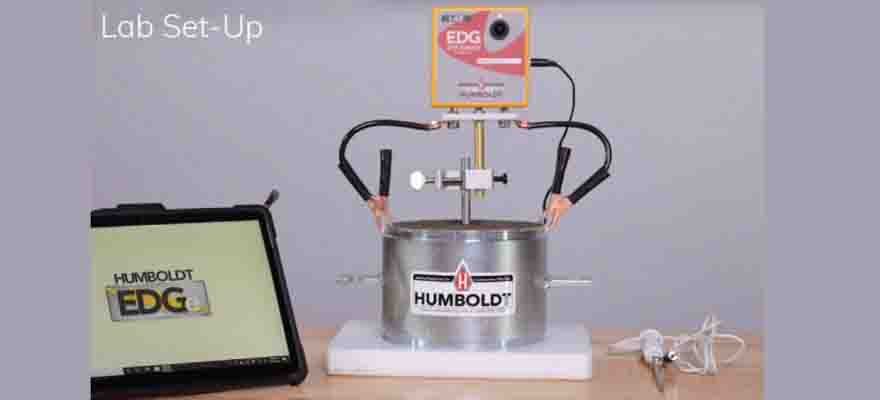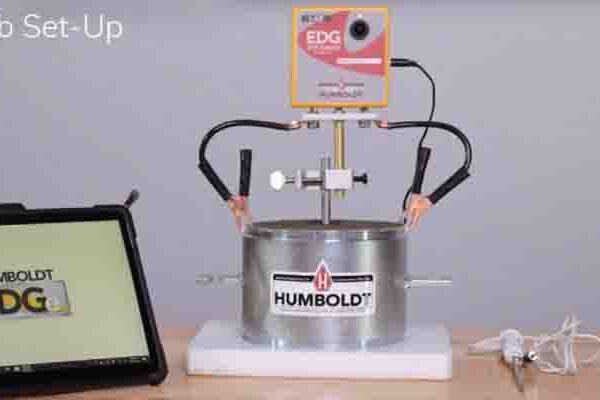The Role of Field Testing Equipment in Agriculture and Soil Science
In agriculture and soil science, the health of the soil plays a vital role in determining crop yield, land fertility, and environmental sustainability. To make informed decisions, farmers, researchers, and engineers rely on field testing equipment that provides critical insights into the composition, texture, and condition of the soil. These tools are essential for ensuring that agricultural practices are both effective and sustainable. This article explores the role of field testing equipment in agriculture and soil science, highlighting key tools used in soil analysis and their impact on farming practices.
1. Understanding Soil Health with Field Testing Equipment
Soil health is the foundation of successful agricultural practices. Understanding the physical and chemical properties of soil, such as its permeability, texture, and compaction, helps in making decisions related to crop selection, irrigation, fertilization, and land management. Field testing equipment offers precise measurements that contribute to optimizing soil quality and improving farming outcomes.
For instance, Residual Ring Shear testing systems are commonly used in soil science to assess the shear strength and stability of soil, which is crucial for understanding its load-bearing capacity and drainage characteristics. This test helps agronomists determine how soil will behave under different conditions, such as during heavy rain or drought.
2. Key Field Testing Equipment Used in Agriculture
Several types of field testing equipment are commonly used in agriculture and soil science to measure different properties of soil and enhance farming practices:
- Permeability and Compaction: Soil permeability directly impacts water retention, drainage, and root penetration. Instruments like the Blaine Air Permeability apparatus are used to measure the fineness of materials such as cement, which can affect soil compaction and its ability to hold nutrients. Accurate permeability measurements help optimize irrigation techniques and reduce water wastage.
- Soil Composition Analysis: Understanding soil composition is essential for determining nutrient availability and selecting the right crop varieties. A Rock Point Load Test is another useful tool in soil science for measuring the strength of rocks or soil aggregates. It provides insights into soil stability, which is crucial for infrastructure projects and agricultural land development.
- Soil Shrinkage Tests: Autogenous Shrinkage testing measures how soils react to environmental changes, such as wetting and drying cycles. This test is especially important in regions prone to extreme weather conditions like droughts and floods, as it helps predict the soil’s behavior under varying moisture levels.
3. Improving Soil Management Practices
Field testing equipment provides the data necessary to make precise soil management decisions. For example, the GPR Survey technology uses ground-penetrating radar to map the subsurface structure of the soil, including moisture levels, root growth, and soil stratigraphy. This allows farmers to detect areas of high or low moisture content, helping them target irrigation efforts more effectively.
Furthermore, Pile Foundation Testing is essential for evaluating soil strength and stability when constructing agricultural buildings or infrastructures such as silos, barns, and greenhouses. By understanding the load-bearing capacity of the soil, engineers can design structures that are both safe and cost-effective.
4. Enhancing Crop Productivity
With the accurate data provided by field testing equipment, farmers can make well-informed decisions that boost crop productivity. For example, soil testing equipment can identify nutrient deficiencies and imbalances in the soil. Tools such as the Rapid Chloride Test are used to measure the chloride concentration in soil, which can influence plant growth. If chloride levels are too high, they may affect plant roots and reduce crop yields. Through regular soil testing, farmers can amend soil conditions by adding the right fertilizers and amendments.
5. Environmental Impact and Sustainability
Field testing equipment also plays a crucial role in ensuring that farming practices are sustainable. By accurately measuring soil properties, these tools help minimize the environmental impact of agricultural activities. For example, regular soil testing ensures that fertilizers are applied in optimal quantities, reducing the risk of runoff that can pollute nearby water bodies. Proper testing can also guide crop rotation practices, reducing the need for excessive irrigation and promoting long-term soil health.
The Rock Fracture Test can also assist in understanding soil stability and fractures in subsurface materials, which is useful in preventing soil erosion and land degradation. Erosion control is vital for maintaining soil fertility and preventing the loss of arable land.
6. Precision Agriculture and Technology Integration
With the rise of precision agriculture, field testing equipment has become more advanced, incorporating digital technology to provide real-time data for decision-making. Integration of digital tools with equipment like the Rebound Hammer for soil compaction testing allows farmers to monitor soil health remotely, improving their ability to respond quickly to changing conditions.
Moreover, integrating digital platforms with soil testing data helps farmers track soil health over time, providing a more accurate picture of how soil quality evolves and how specific crops respond to different soil conditions. This data-driven approach improves overall farm management and ensures that resources are used efficiently.
Conclusion
Field testing equipment is integral to modern agricultural practices and soil science. It enables farmers, soil scientists, and engineers to understand soil properties with precision, leading to better management practices, enhanced crop productivity, and more sustainable farming. By using tools such as Rock Fracture Tests, Residual Ring Shear tests, and Blaine Air Permeability apparatus, agriculture and soil science professionals can ensure that farming practices remain effective, efficient, and sustainable in an ever-changing environmental landscape.
















